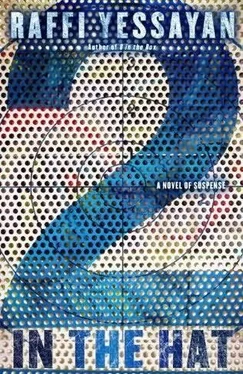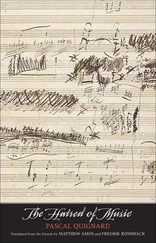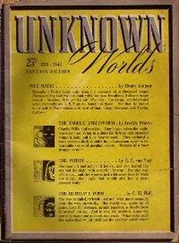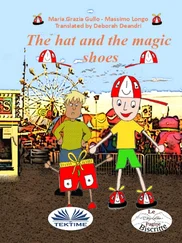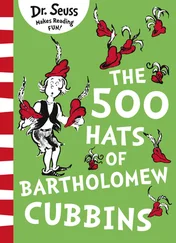Alves recognized that spark of alertness he felt every time an interview veered unexpectedly into pay dirt. “What did he do?”
“He said I shouldn’t have misled him. He said that once we have intercourse, it shifts the power of a relationship, upsets the balance. He said he was only thinking of Rachel, making it sound like I was a bad mother. He left my apartment and never came back. After that, we were never alone, not even at work. When the summer ended, I had to make money. I couldn’t intern anymore. I had sent out résumés to other prosecutors’ offices around the state. I was lucky to end up in Falmouth District Court. My parents own a house in Falmouth, so I stayed there. When the job opened up on the Island, Rachel and I moved out here.”
“It’s a nice life. Are you happy?”
“I am. Will is a wonderful guy. He’s a great father to Rachel.”
“That’s all that matters.”
“Angel, I’ve never figured Connie out. I don’t think he’s gay, and I’m not buying that line about him thinking of Rachel. If that were the case, he never would have walked out of her life that night. That’s what bothers me most. I’m a grown woman, and I’ve had my dealings with worthless men. But he can go to hell if he thinks I’m going to let him hurt my daughter.”
“Have you ever been over his house?” Alves asked.
“That’s another thing he was weird about. I dated him for a year and I never set foot in that house. He always had excuses, that he was plastering or painting, that the house was a mess, that he didn’t want me to see it until it was done.”
Angel could see that rehashing her relationship with Connie was upsetting her. “Things don’t make a lot of sense right now, Andi. Soon as I know anything for sure, I’ll tell you what I can. Thanks for seeing me. If I think of anything else, can I call you?”
“Sure.” She smiled, a little worn and weary after their conversation. “And I know, you and I never had this conversation.”
“You’re a doll, Andi.” He stood and hugged her. “Give Rachel a kiss from me.”
Earlier, Sleep had made the mistake of not following Darget from his home in Hyde Park. Instead, Sleep had been watching the DA’s office in Government Center from across the street on one of the benches in front of the JFK Building.
He played a game while he was waiting. First he’d find a number-say, the number of pigeons that waddled past him in five minutes. With that number, he’d count the males-old and young-who walked by his bench. When he hit the right number, that one was his brother for the day.
Sleep was good at the game. He’d been playing it since he was a kid, sitting by himself at the attic window, watching the passersby on the sidewalk below. First he imagined a name-Gussy, Tony, Billy-and then a life for his new brother. Sometimes it was going to school-and a good one, like Boston University or Harvard even. Sometimes it was a great job and co-workers, a family waiting for him back on their family’s street. Little nieces and nephews Sleep could play with and babysit for.
He liked the game. It always calmed him down, made his mind stop jumping ahead to questions and back to bad times. And when the game didn’t work for him, he always had Brother Death. His almost-twin, separated when their father had to be ferried across the River Styx to the underworld. Sleep couldn’t go with his father. He’d never make it back to the living. But Brother Death, he could wade back across the river if he wanted to.
Now Sleep was tired with the game. There had been no sign of Darget.
Yesterday, Newbury Street had been a debacle. Sleep didn’t know if Darget had recognized him on the street or not. If he did, that meant that Sleep wouldn’t be able to get close enough. In fact, he couldn’t use the van anymore. Darget had seen it and would recognize it immediately. So he had rented a minivan. An electric blue monstrosity with tinted windows and sliding doors on each side, the kind that the gang kids in the city used for their missions. What he needed to do now was a quick drive-by. Catch Darget off guard and it would be done. Make it look like a gang hit.
A little after nine o’clock, Darget finally showed up. Late, for him, and he didn’t look happy. Something was definitely wrong. The fact that Darget had talked to Natalie meant that Darget was on to him. After leaving Natalie’s store, the next logical move for Darget would have been to tell his detective friends what Natalie had said about him. If the detectives knew anything, Sleep would already be in custody. But they hadn’t come for him. Not yet. Which meant that Darget hadn’t told them anything. Yet. But why not?
Figgs turned onto Townsend Street and pulled over, left the motor running. The ID Unit had put a rush on the photos taken of the scene and the gun in Stutter Simpson’s mother’s car. They were ready by the time he finished talking with Grady at the barber shop. He placed the photos on his lap, resting them against the steering wheel as he examined each one. Big question: Where had Stutter’s car stopped? In one photo, he saw a hydrant, and behind that, the trunk of a tree. Figgs found the hydrant easily and pulled up to that spot.
Something was nagging at him. It was too convenient, that gun found under Stutter Simpson’s butt. A gun that Simpson had supposedly used months earlier. A gun that had been passed around from one street gang to the next, all over the city. Why would it end up back in Simpson’s possession? Simpson had to know the gun had a body on it. So why would he keep it with him? Especially when he knew the police were looking for him.
Figgs stepped out of the car, surveying the neighborhood. Which houses had the best vantage point to observe the stop, the foot pursuit, the arrest, the recovery of the gun? The houses on Hazelwood Street. Figgs knocked on a few doors, the houses closest to Townsend, but mostly nobody answered. Those that did hadn’t seen anything. He made his way across a small parking lot to the next group of houses when he thought of something. There was someone he could talk to who lived in the neighborhood. Sort of. Figgs just hoped the man was “home.”
He walked across Townsend Street toward the Boston Latin Academy, one of Boston ’s exam schools. When Figgs was a kid, it was called the Girls’ Latin and it was housed in Dorchester, not Roxbury. He turned right, heading toward Humboldt, then made his way through an empty park on a worn footpath that cut diagonally across the brown grass. He spotted the shopping cart, piled high with cans, at the other end of the park, near Humboldt.
“Hey, Figgsy,” the man called out as he got closer.
The man was lying underneath a tree at the edge of the park, bundled in layers of coats, despite the unseasonably warm weather. His face was aged with drug and alcohol abuse.
“Hey there, Leo. How you been?” Figgs said.
“Doin’ okay. What’s a big Homicide detective doin’ out here in the hood? Slummin’?”
“I’m looking into something. Leo. You didn’t happen to be out here last night?”
“Might’ve been.”
“You see a dude with a ’fro get pinched by a couple of cowboys?”
“More ’n a couple.”
“What’d you see?”
“Heard them buzzing up the street. Toyota smashes into the curb and the kid bails. Big guy and little guy chase him down. Heard one cap. Figured the brother was toast. Then they bring him back.”
“You heard gunshots?” Figgs turned back toward the street.
“One shot.”
That wiseass prosecutor forgot to mention anything about shots being fired. There was no mention of it in the 1.1 either. That’s because Simpson didn’t shoot at Greene and Ahearn-they shot at him. And missed. They wouldn’t mention anything about a police officer discharging his firearm in the official police report, a public record. Figgs would have to pull the form 26s to find out everything that had happened out here last night.
Читать дальше
